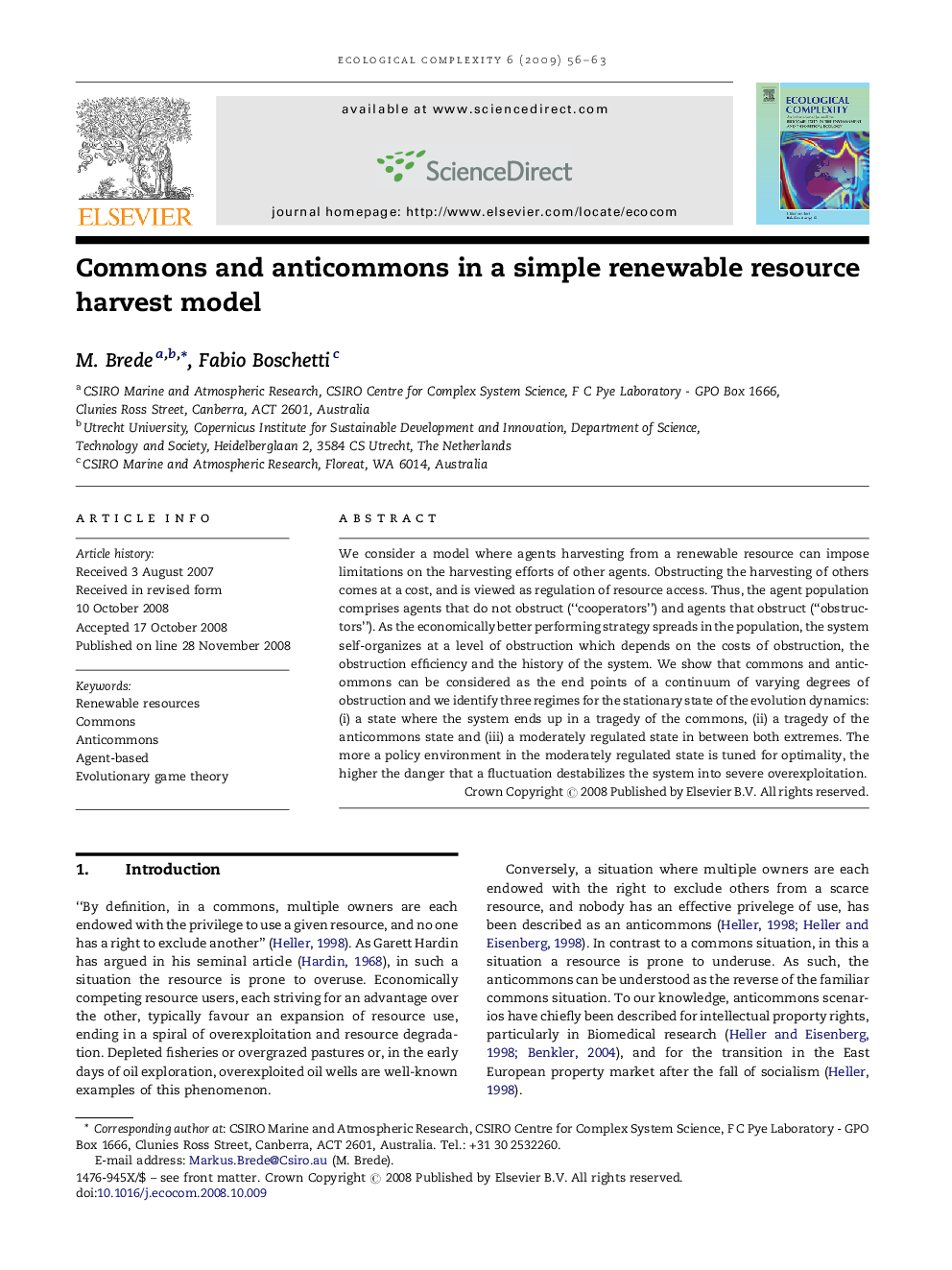| Article ID | Journal | Published Year | Pages | File Type |
|---|---|---|---|---|
| 4372738 | Ecological Complexity | 2009 | 8 Pages |
Abstract
We consider a model where agents harvesting from a renewable resource can impose limitations on the harvesting efforts of other agents. Obstructing the harvesting of others comes at a cost, and is viewed as regulation of resource access. Thus, the agent population comprises agents that do not obstruct (“cooperators”) and agents that obstruct (“obstructors”). As the economically better performing strategy spreads in the population, the system self-organizes at a level of obstruction which depends on the costs of obstruction, the obstruction efficiency and the history of the system. We show that commons and anticommons can be considered as the end points of a continuum of varying degrees of obstruction and we identify three regimes for the stationary state of the evolution dynamics: (i) a state where the system ends up in a tragedy of the commons, (ii) a tragedy of the anticommons state and (iii) a moderately regulated state in between both extremes. The more a policy environment in the moderately regulated state is tuned for optimality, the higher the danger that a fluctuation destabilizes the system into severe overexploitation.
Related Topics
Life Sciences
Agricultural and Biological Sciences
Ecology, Evolution, Behavior and Systematics
Authors
M. Brede, Fabio Boschetti,
